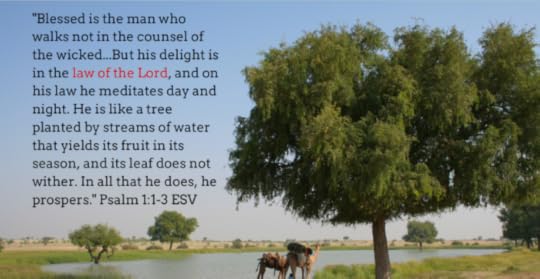Robin Patchen's Blog, page 3
February 14, 2017
Does Godly Parenting Produce Godly Children? Part 2
This post first appeared at Jennifer Slattery Lives Out Loud. You’ll find a lot of wonderful and insightful posts there.
Last week, I told you about the belief I carried early in my years of parenting, that if I just did my job right, my kids would “skip that pesky rebellious stage and slide effortlessly into adulthood.” I shared with you some of the reasons I no longer believe that’s true or even possible. Here’s the conclusion of that post:
 When my oldest chose drugs over our family, my husband and I let him walk away. But we didn’t forget him—not for a moment. No, we prayed and begged God to bring him home. At one point when I was praying, I felt the Lord’s words in my ears. “Do you trust me with your son?”
When my oldest chose drugs over our family, my husband and I let him walk away. But we didn’t forget him—not for a moment. No, we prayed and begged God to bring him home. At one point when I was praying, I felt the Lord’s words in my ears. “Do you trust me with your son?”
Did I trust him? Too many young people, many children of godly parents, get lost to drugs and alcohol—or simply lost to their own foolish choices. Some kids end up in prison, others end up homeless. Some run away and aren’t heard from for years. And some end up in the grave. There are no guarantees for any of us. Trusting God meant facing that my son could be lost to us for a time, or for good. But I knew I couldn’t fix it, and I believed God could. I was out of options.
I decided at that moment that I did trust Him with all my children. It was either trust Him or go mad with grief and fear.
My first-born’s story has been a testimony to God’s provision. The Lord brought my son home. He went to rehab, he got clean, and now he’s studying to be a missionary with Youth with a Mission.
God’s plan for my son was not my plan for him. My son rejected us and rejected God, but God never rejected him. God wooed him back, pulled him through, and turned him into this amazing, Spirit-filled young man with a burning passion for Christ. None of that would have happened apart from the rebellion that started it all.
So are we failures as parents, because our son landed in rehab? Or, are we good parents, because now he’s walking with God? Or, are we merely imperfect parents, doing our best—all anyone can be asked to do? God knows our faults and shortcomings, and He blessed us with these young people anyway. How they turn out is ultimately in His hands. No matter what happens, I will continue to trust Him with my children.
February 7, 2017
Does Godly Parenting Guarantee Godly Children?
I originally wrote this post for Jennifer Slattery’s blog, a wonderful place for encouragement in all aspects of life. Stop by and see!
 I have a confession to make: I have three teenagers, and all of them have rebelled to one degree or another. In fact, one rebelled so thoroughly, he spent what should have been his senior year of high school in rehab. I promise you, when he was a little baby, all smiles and giggles, I never imagined that. When I was reading Goodnight Moon to that boy for the thousandth time, you couldn’t have convinced me he’d ever struggle with addiction. When I homeschooled him, taught him to read, took him to church, rehab never entered my mind.
I have a confession to make: I have three teenagers, and all of them have rebelled to one degree or another. In fact, one rebelled so thoroughly, he spent what should have been his senior year of high school in rehab. I promise you, when he was a little baby, all smiles and giggles, I never imagined that. When I was reading Goodnight Moon to that boy for the thousandth time, you couldn’t have convinced me he’d ever struggle with addiction. When I homeschooled him, taught him to read, took him to church, rehab never entered my mind.
So what went wrong?
When my kids were preschoolers, my husband and I attended a parenting conference. A man I respected greatly taught one of the classes. He made a lot of points in that class, but one stuck with me.
He suggested that some of the “great” men in the Bible weren’t all that great as fathers. He mentioned Eli, whose sons were called “scoundrels” (1 Samuel 2:12). He talked about David. One of his sons, Amnon, raped his own sister (2 Samuel 13). Another of his sons, Absolom, started a revolution (2 Samuel 15). This Bible teacher’s point was clear: If your children misbehave, then you must be a bad parent.
Some evidence for that idea can be found in the Bible. Proverbs 22:6 tells us, “Train up a child in the way he should go, and when he is old he will not depart from it” (NKJV).
Way back when I had preschool children, I savored that idea like I would the best Swiss chocolate. I believed I had that much power, that if I just did my job right, my children would obey me, walk with God, and be blessed. I was convinced that if I could just be good enough, then my kids could skip that pesky rebellious stage and slide effortlessly into adulthood.
What a nice thought, that great parenting plus solid Bible teaching equals perfect kids.
A decade later, I can testify to one thing—that’s a total crock.
Don’t get me wrong, friends. It’s essential that we parents do our very best. We must discipline our children consistently. We must teach them the Bible. We must expose them to truth and encourage them to do right. It’s essential that we love and spend time with them and guard their influences. There’s all that stuff, and there’s mountains more we need to do to ensure our children have the best chance in life.
But do our efforts guarantee results? If we do all of that, will we then have godly, obedient children?
Maybe. Maybe not.
If you read Proverbs 22:6 closely, you’ll see it doesn’t promise that your children will never depart from the way you taught them to go. It says that “when he is old, he will not depart.”
What about the time between today and “when he is old”? Will he not depart from the correct way at all, ever? How does that
fit in with the idea that “all have sinned and fall short…?” (Romans 3:23) Other Scriptures warn us that children do rebel against their parents, even perfect parents.
“Listen, O heavens! Pay attention, earth!
This is what the Lord says:
‘The children I raised and cared for
have rebelled against me.’” Isaiah 2:1
If our perfect God doesn’t have perfect children, how can we, as imperfect as we are, expect to do better? And do we truly believe that our children are simply blank slates, or are they, like us, born with a sin nature? Why do we believe we can outsmart sin with rules and guidelines?
It’s a lovely idea. Or perhaps, it’s an insidiously evil idea. Because if I believe I can control my children’s futures with perfect parenting, where does God fit in? If I believe that Bible teaching and Scripture memorization will make my kids into perfect little Christian soldiers, what room have I left for grace? And when my children fail to be perfect—which they are guaranteed to do—who do I blame? Myself, for all the times I failed? God, whom I was trying so hard to obey? Or my children, for not living up to my expectations?
I thank God that over the years of parenting, He taught me that, ultimately, I have very little control over their choices. The older they get, the less control I have and the more freedom they have to make good choices or to mess up their lives.
Come back next week for Part II, Trusting God with our Children.
January 31, 2017
New Romantic Suspense: Twisted Lies
 She thought they’d never find her. And then her daughter vanished.
She thought they’d never find her. And then her daughter vanished.
Marisa Vega’s life as an adoptive mom in a tiny Mexican village isn’t what she’d dreamed while growing up in New York, but as the target of a man who’s convinced she stole millions of dollars from his financial firm, Marisa believes hiding is her only way to stay alive. When her daughter is snatched and held for ransom, Marisa must discover who really stole the money in order to rescue her.
Months after being kidnapped, tortured, and left with PTSD, Nate Boyle is ready to live a quiet life in rural New Hampshire. When the source of his breakout newspaper article—and the woman who haunts his dreams—begs for help, he gets pulled into a riddle that’s proved unsolvable for nearly a decade.
Can Nate and Marisa unravel the years-old mystery and bring her daughter home?
Twisted Lies is the second in the Hidden Truth Series. For information on all my releases, join my newsletter (see the link in the upper right), and be sure to check out my books page. You can also follow me on Amazon, BookBub, or Goodreads.
November 16, 2016
Praying for Truth in the Misinformation Age
I’m blogging at Quid Pro Quills today. Here’ s a sneak peek.
I have a friend who suggests that the so-called “Information Age” should be relabeled the “Misinformation Age.” I think he has a point, and that point has been sharpened considerably in the last few months. No matter what you think of our president-elect or his opponent, you can prove your side of any argument with just a few strokes of the keyboard and clicks of the mouse. Anybody with even the smallest platform can publish truths, half-truths, or flat-out lies, and regular folks like you and me are left to parse facts from fabrications.
It’s maddening, isn’t it?
Read the rest at Quid Pro Quills.
August 11, 2016
The Perfect Response to Facebook Haters
I blogged at Quid Pro Quills this week on dealing with ugly comments on Facebook. Here’s an excerpt:
You know the type. You post something you think is fairly innocuous, and suddenly you get people slinging hateful comments like cow patties. As you read the shocking words, you heart drops, your hands tremble, and your whole body vibrates with anger. Words bubble up from a simmering cauldron you thought you’d taken off the fire years before, and the next thing you know, you’re typing furiously.
You attack. He spars. You’re in a full-blown fight with some Facebook friend you’ve never even met.
And then the dust settles, and you think…what did I just do?
Read the rest at Quid Pro Quills and share your thoughts.
June 17, 2016
Love in the Age of Insanity
 I published this blog on Quid Pro Quills Wednesday, and it seemed to have hit a nerve, because I had more views than I’ve ever had on a blog post. So I’m reprinting it here for y’all.
I published this blog on Quid Pro Quills Wednesday, and it seemed to have hit a nerve, because I had more views than I’ve ever had on a blog post. So I’m reprinting it here for y’all.
We live in a crazy world.
We live in a world where a madman who aligns himself with Islamist terrorists guns down a nightclub full of people, and immediately, Christians are lectured and, in some cases, blamed for the attack.
Wait, what?
Because of course that lone gunman didn’t reflect the attitudes and beliefs of every single Muslim. So obviously that act of terrorism had nothing to do with Islam.
But if some loudmouth on Twitter spouts off evil speech about the sexual orientation of the victims and attempts to validate to his hate by bringing the word “God” into the mix, obviously he speaks for all Christians.
I don’t know about you, but I’m getting annoyed.
The question is, what are we to do about it? I know what I want to do. I want to defend myself and my fellow Christians. I want to explain that most of us believers couldn’t care less the sexual orientation of the victims. All human beings are valuable and precious. My Jesus died for every single one of the victims, and if they are precious to Him, then they are precious to me. I reacted like the rest of the country–I was horrified. Unlike much of the country, I immediately began praying for the victims and their families, and like many Christians, I continue to pray.
More than just defending Christians, I want to illuminate the ways Christians serve our society. In my community, I could point to multiple charities started and run by Christians—food banks, homeless shelters, outreaches to the poor, free ESL classes for immigrants—legal and illegal. Last week, my church sent hundreds of students to paint homes for free, just to show the love of Christ and give low-income homeowners a gift. My kids came home splattered with paint and joy because of the experience.
I want to remind the world that obviously there will be some rude Christians, just like there are rude people in every group. Becoming a Christian doesn’t make a person perfect, just forgiven. Most (but not all, unfortunately) of those people will mature. Should I judge every Democrat by the worst of that lot? Every Republican? Every banker? Every store clerk?
Tweet this: Christians are called to love in this age of insanity.
Oh, there are so many things I want to say when I hear the foolishness of the world. But then I remember my God, who tells me that it’s not my place to defend myself. In fact, He has a lot to say on the matter in Romans 12*:
Verse 14: Bless those who persecute you; bless and do not curse them.
Verse 17: Repay no one evil for evil, but give thought to do what is honorable in the sight of all. If possible, so far as it depends on you, live peaceably with all.
Verse 19: Beloved, never avenge yourselves, but leave it to the wrath of God, for it is written, “Vengeance is mine, I will repay, says the Lord.”
Verse 21: Do not be overcome by evil, but overcome evil with good.
So it’s not up to me to defend myself or my fellow Christians. And when I remember that my battle is not against people but against the forces of darkness (Ephesians 6:12), it’s easier to forgive the world’s foolishness.
So what are we to do as we live in this age of insanity? We are to love. Jesus said it best: “By this all people will know that you are my disciples, if you have love for one another” (John 13:35).
We are called to love in the age of insanity.
(*All Bible quotes are from the English Standard Version and copied from Bible Gateway.)
May 19, 2016
Stopping for Directions–from God
 I’m blogging over at Quid Pro Quills today. Here’s a teaser:
I’m blogging over at Quid Pro Quills today. Here’s a teaser:
About a month ago, I blogged about finding contentment on earth. My conclusion: It’s impossible. That blog, as well as the one from two weeks ago about how I react when I read great novels, both stemmed from a general feeling of unease I’ve had lately, the fear that I’m on the wrong track in my career—or my life.
Last week, I decided to seek the Lord’s guidance. Rather than spend my usual two hours every morning writing, I spent that time with the Lord.
Stop by Quid Pro Quills to read the rest.
April 20, 2016
Finding Contentment on Earth
 My husband and I went to Paris for our twentieth anniversary. There’s something magical about that city—for me, anyway. We wandered along the streets for a week, and always, in the back of my mind, rang the mantra: I could live here. I could live here forever and be happy.
My husband and I went to Paris for our twentieth anniversary. There’s something magical about that city—for me, anyway. We wandered along the streets for a week, and always, in the back of my mind, rang the mantra: I could live here. I could live here forever and be happy.
On the heels of that giant lie came a whispered truth—that contentment cannot be found in Paris. If I were to move to Paris, soon, too soon, I would long for tall trees where I often feel so close to God. And if I were live in the cathedral of the redwoods, I would dream about snowy mountain cottages. And if I were to relocate to a ski town in Colorado, I would ache for sunshine and palm trees. But if I were to someday, somehow, find a secluded seaside home, I’d probably secretly yearn to live in Paris.
 The truth is, I will never find true contentment on earth. Yet I seek it, I search for it as if it’s right around the next corner. In a meal with friends or a divine piece of Godiva chocolate. Some seek it in a pill or a bottle. Some seek it in fitness and vanity, others in success in the workplace, or in squirreling away enough money so that when they find that elusive thing, they’ll be able to buy it and bring it home and have it forever. As if contentment can be found in a Ferrari or a flat screen TV.
The truth is, I will never find true contentment on earth. Yet I seek it, I search for it as if it’s right around the next corner. In a meal with friends or a divine piece of Godiva chocolate. Some seek it in a pill or a bottle. Some seek it in fitness and vanity, others in success in the workplace, or in squirreling away enough money so that when they find that elusive thing, they’ll be able to buy it and bring it home and have it forever. As if contentment can be found in a Ferrari or a flat screen TV.
C.S. Lewis said in Mere Christianity, “If I find in myself desires which nothing in this world can satisfy, the only logical explanation is that I was made for another world.”
The longer I live, the longer I seek pure contentment, the more convinced I am that C.S. Lewis was on to something. I was not made for this world. Neither were you. We were made for eternity, so there will always be, pumping beneath the surface of our skin and our wants, a deeper desire we can never satisfy—to be united with the One who created us, to be surrounded by the beauty that goes beyond cities and mountains and trees and beaches, that goes beyond vanity and money and Masaratis.
Tweet this: “I was not made for this world. Neither were you. We were made for eternity.”
There is, within each of us, an emptiness that can only be filled with the Creator who put it there. And it will not be filled, not completely, not permanently, until we meet Him face to face. Beyond the places and the things and the desires of the earth lie the One we truly want, and only in Him, in Heaven, we will be forever content.
February 27, 2016
Delighted to be mentioned

I was honored to find my name on K.M. Weiland’s blog listing great book editors. See the post (and a lot of other great editors’ names) here: https://www.helpingwritersbecomeauthors.com/good-book-editor/
January 27, 2016
God doesn’t want to bless you . . . for your sake alone
 I was in church a few weeks ago when the Lord whispered to my soul words I never thought I’d hear from God. “I don’t want to bless you.”
I was in church a few weeks ago when the Lord whispered to my soul words I never thought I’d hear from God. “I don’t want to bless you.”
I immediately tuned out the pastor. “What was that, Lord?” Surely I’d heard him wrong.
Another minute or two passed while I waited. Finally, probably when God had my full attention, he continued: “I don’t want to bless you . . . for your sake alone.”
Oh. Phew.
Wait, what?
Tweet this: God doesn’t want to bless you for your sake alone.
Then he brought to my mind a passage of scripture I’d memorized many years before. Psalm 1:1-3:
Blessed is the man
who walks not in the counsel of the wicked,
nor stands in the way of sinners,
nor sits in the seat of scoffers;
but his delight is in the law of the Lord,
and on his law he meditates day and night.
He is like a tree
planted by streams of water
that yields its fruit in its season,
and its leaf does not wither.
In all that he does, he prospers.
I’d first memorized those words when I was a young Christian. One of the reasons I loved it was that last line—“In all that he does, he prospers.” I’m a little embarrassed to admit that I thought of that in financial terms. Oh, I knew the verse didn’t necessarily promise me riches, but I figured my chances were much better to get rich if I followed God, and with all our financial woes at the time, prosperity sounded pretty good.
Through the years, I came to understand that the tree flourished because of its deep roots—a strong connection to God. It flourished because the river flowed near it—like the living waters of Christ that fill us and bless us. So the prosperity spoken of in verse 3 has everything to do with the blessings of being connected to Christ.
That Sunday in church, the Lord spoke again to my heart. “What does the tree do?” he asked.
I closed my eyes and imagined a tree like the Psalmist might’ve been looking at, one standing in the arid Israeli soil, maybe even a tree in an oasis in the desert. I had to dig pretty deep to some old science lessons, but I came up with a list.
A tree:
Provides shade
Acts as a wind barrier
Provides shelter in a storm
Absorbs rain that would otherwise runoff or evaporate
Converts carbon dioxide to oxygen
Becomes a home for birds, animals, and insects
Provides fruit, which becomes food, then seeds to reproduce itself
There was more, though. Picture that tree in the midst of a desert, standing high above the sand. It shows people where the water is. A tree would be a welcome sight to a weary, thirsty traveler.
So if I live my life the way I should (see verse 1) and delight myself in God’s word (verse 2) he will make me like this tree. And what does this flourishing tree do?
It provides shade from the world—protection from penetrating rays of judgment.
It acts as a barrier as the enemy hurls his accusations like a strong wind.
It provides shelter from the many storms of life.
It absorbs nourishment, so others can grow nearby.
It illustrates how God can convert the ugly output of our lives into blessing.
It offers a shelter to anyone who seeks it.
It feeds the hungry and, through its work, reproduces itself.
It acts as a beacon, drawing weary travelers to the life-giving water of Jesus Christ.
And think about this: which of those blessings benefit the tree? None of them. God makes that tree flourish to provide his living creatures with what they need. In the same way, God blesses us so that we can love the souls he puts in our lives. He makes us to stand tall, so more of his weary children will find their way home.
God doesn’t want to bless you for your sake alone. He wants to bless the world through you. Soak in God’s truth, my friends. There are travelers seeking the living water, and you may be the only tree in their desert.



